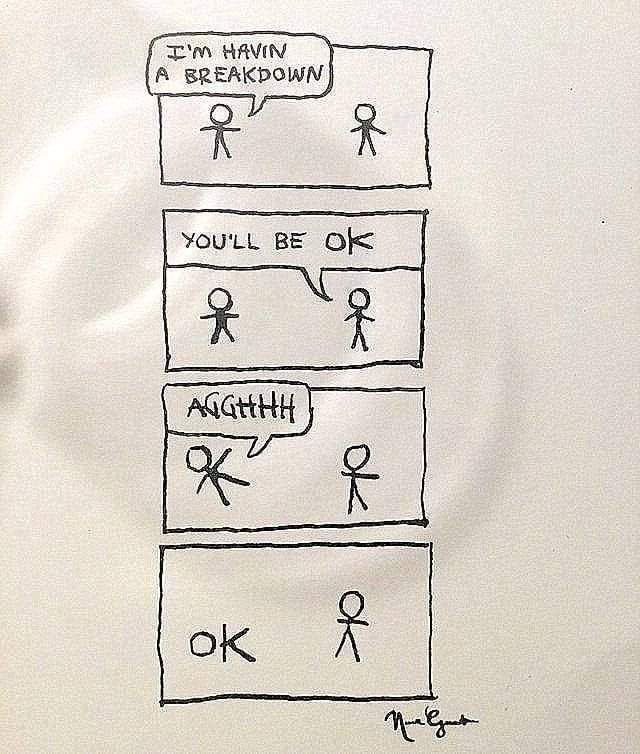
The ambivalence of #StayTheFuckHome
The message #StayTheFuckHome has flooded our social media accounts. Most European governments have agreed by now that this is the best thing to do in order to stay healthy and #FlattenTheCurve. It’s a message to those who don’t take the virus seriously yet. To stay the fuck home makes sense and is what every individual can do now to contribute to our society.
It was a few days into home office, and a few days before the “lockdown” started in Austria, that a friend read the post #StaytheFuckHome and burst into tears. For a few days, she had been telling me how scared she was of a potential lockdown. Scared of her best friends not wanting to see her anymore, despite living very close to her home. Scared of being alone and feeling lonely. The message triggered all those fears in her. #StayTheFuckHome indeed seems to be the right thing to do, however the message can come across as very cold, especially for people who are scared of staying home alone.
I am not advocating for not posting this hashtag message, after all it is important that we practice ourselves in physical distancing in order to safe as many lives as possible. I am advocating for acknowledging that it isn’t necessarily easy. Here I am not referring to sacrificing parts of our lifestyle we have taken for granted. Sure, that isn’t easy, but I am hoping it will help us to reflect on what is really essential in our lives and if we need all those things, activities and trips. What I am referring to is acknowledging the mental & emotional strains the various ways of being isolated can have on us. Understanding and acknowledging that staying home is the right thing to do does not contradict understanding and acknowledging that some people are scared and showing compassion towards them.
Our fellow humans may not only be scared of feeling lonely, but also scared of being a bad mother or father when they wish the kids were in school again. Scared of being a bad husband or wife when they fight more often due to the 24/7 exposure to each other. Feeling lonely when you are an isolated single is as normal as feeling the need to be alone sometimes when cramped together as a family.
Holding up the finger and commanding #StayTheFuckHome while not at the same time showing empathy to those friends who need the comforting, who need to be told “I know this is hard, but we will manage together”, just brings us closer to individualism instead of solidarity. We can do both however, when we embrace ambivalence.
Tolerance for ambivalence comes easier to some than to others and is especially not easy in uncertain times, when we seek for clarity and the (at least virtual) reduction of the complexity of the situation. To many, ambivalence equals uncertainty and not having things figured out. Often our belief system tells us that we ought not have feelings that seemingly contradict each other and we ought to resolve those paradoxes. However, every day in our lives, we experience contradicting thoughts and wishes. We are so used to eradicating the unpleasant thought in order for only the other one to remain. We do that by rationalising – finding rational explanations for why we act on the pleasant thought, not acknowledging that the other one is there, too. We are in constant battle with ourselves, trying to trim down and rationalise away those thoughts and wishes that we do not want to have. Acknowledging that ambivalence is okay, that it is something quite normal in fact, frees us. For example, we can acknowledge that our ego feels Schadenfreude when our badly organised colleague messes something up, however we can at the same time choose not to act on it.
Understanding that staying home is the best thing we can all do, while at the same time showing empathy for those that find it hard, is acknowledging the ambivalence of the situation and may help us in finding more constructive ways of communicating than fighting against each other on the question whether it’s good or bad to stay home.
Understanding the Corona crisis as a chance for humanity to reflect on their values, to decelerate and having solidarity bloom, while at the same time experiencing loved ones die and businesses collapsing is acknowledging the natural ambivalence inherent to crises. Crises are hard, they nearly destroy us, but they bring the chance for growth. Only when we acknowledge the ambivalence of crises we can in fact grow from the crisis, otherwise we will forever be stuck in the grief over what this crisis “has done to us” and cannot move forward with the loved ones we lost remaining in our hearts.
I am curious of how you have experienced the Corona crisis and the lockdowns? What lessons have you learned and how has it impacted your life? Please share in the comments below or via private message.
Written by Julia Heuritsch | Last edited: 19th October 2022